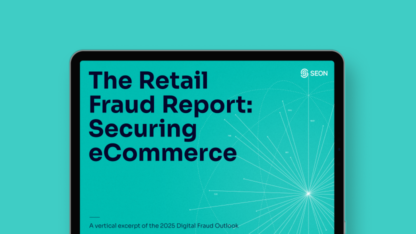What Is Accidental Friendly Fraud?
Accidental friendly fraud occurs when customers dispute payments and initiate chargebacks – in error – for purchases they did in fact make.
Various circumstances can result in cases of accidental friendly fraud. For example, a customer may dispute a payment for a subscription service they signed up to inadvertently, due to not reading the small print.
Similarly, many cases of accidental friendly fraud occur when children accidentally make online purchases on their parents’ accounts. Some of these are on a scale that hits the headlines, but smaller incidents are – perhaps not surprisingly – common. A Childnet study showed that one in ten young people had accidentally spent money on in-app purchases.
Chargeback fraud costs companies over $20 billion per year. 86% of this is due to “probable” friendly fraud. As discussed later, only a proportion of friendly fraud is accidental; however, this type of fraud still creates a considerable risk for businesses.
Partner with SEON to reduce fraud rates, minimize chargebacks, and ensure a smooth shopper journey.
Ask an Expert
How Does Accidental Friendly Fraud Work?
Accidental friendly fraud happens when a customer mistakenly disputes a genuine purchase and requests a chargeback from their card issuer.
Here’s a simple example of how it works:
A customer purchases a product or service, then subsequently finds cause to contact the card issuer for a refund. This can be for a number of reasons:
- They see a charge on their statement and don’t recognize it. They may have forgotten making the purchase, or not recognize the company name mentioned.
- They see a charge they weren’t expecting – perhaps for a subscription or renewal when they believed they had only made a one-off purchase.
- Somebody with legitimate access to their account, such as an additional cardholder or a child using a linked account, made a purchase of which the main cardholder was unaware.
- They agreed on a refund with a company but disputed the payment while the refund was still in progress.
In all of the above scenarios, the company the customer is dealing with is at risk of incurring costs and an administrative burden for dealing with the chargeback – when the genuine customer made a genuine purchase.
If you are required to administer chargebacks for your business, it is worth looking at what options there are for chargeback management software solutions.
Types of Accidental Friendly Fraud
Here are the most common types of accidental friendly fraud:
- Disputed genuine transactions: These are often caused by unclear terms and conditions, or customers failing to check what they are signing up to. In these cases, the customer genuinely believes – incorrectly – that they didn’t sign up for a subscription or a regular payment.
- Unrecognized transactions: These relate to purchases that were made, but where the customer either forgets or doesn’t recognize them when they receive their statement. Companies that process transactions under a different brand name, or under the name of a holding company, can have particular problems with this kind of friendly fraud.
- Transactions made by children: Often linked to gaming and in-app purchases, these incidents of accidental friendly fraud are common. While the transactions are “legitimate”, the cardholder is unaware of them and they are therefore disputed.
- Additional cardholder transactions: Where account owners have additional cardholders, they may dispute transactions they were not made aware of.
Cases of accidental friendly fraud do not represent criminal intent on the part of those requesting a chargeback or disputing a transaction. Those involved genuinely believe that they didn’t make the transactions, or agree to a payment being taken.
What Are the Consequences of Accidental Friendly Fraud?
The nature of accidental friendly fraud dictates that these incidents don’t occur due to malicious or criminal intent. However, the impacts on businesses are indistinguishable from those caused by other types of fraud, including intentional friendly fraud.
Those impacts include chargebacks, loss of revenue, and reputational damage.
- Chargebacks are both expensive and laborious for companies to deal with. In the event of a chargeback dispute, the onus is on the company to prove that the transaction was legitimate. In fact, card issuers often return the customer’s money immediately, leaving the affected company to dispute the chargeback after the fact. Furthermore, a high number of chargebacks can affect a merchant’s reputation with their card services provider. They may be charged higher processing fees in the future.
- Loss of revenue: Businesses hit by all types of friendly fraud are subject to a triple whammy of financial loss. Take, for example, an incident of accidental friendly fraud where a customer requests a chargeback when a refund was – in fact – already in progress. The business can lose the cost of providing the product or service, the cost of the refund, and any admin fees charged by the card service provider. On top of that, there’s the operational cost of dealing with each incident.
- Reputational damage: Aside from the company’s reputation with its service provider, accidental friendly fraud can also impact a firm’s wider reputation. Many customers who find themselves turning to their bank or credit card company to seek a refund won’t hesitate to take to Trustpilot or Google Reviews to share their experience.
While accidental friendly fraud is unintentional, businesses still need to consider its impacts as part of their anti-fraud strategy. The consequences remain the same. If, for example, a company is pushed over a “high risk” threshold with a card service provider, it’s largely immaterial what type of fraud was to blame.
Differences Between Intentional and Accidental Friendly Fraud
Accidental friendly fraud is a specific type of fraud that comes under the wider friendly fraud banner. Friendly fraud also encompasses many other types of first-party fraud, such as dishonestly requesting chargebacks – namely chargeback fraud – as well as refunds, or using chargebacks in an attempt to cancel non-refundable travel arrangements.
The key difference between intentional and accidental friendly fraud is that in the case of accidental friendly fraud, the customer genuinely believes that they are entitled to the refund they are requesting.
Partner with SEON to reduce fraud rates in your business with real-time data enrichment, whitebox machine learning, and advanced APIs.
Ask an Expert
How to Protect Against Accidental Friendly Fraud
Here are some ways to protect your business against incidents of accidental friendly fraud:
- Ensure customers have an easy way to query transactions. The ability to speak to a real person reduces the chance of a customer feeling their only option is to contact the bank and request a chargeback.
- Communicate clearly with customers, especially when selling subscription products or anything else that automatically renews. “Tricking” customers into auto-renew plans and hiding true costs in the small print is a short-sighted way to increase revenue – and one that’s likely to backfire.
- Use a fraud prevention solution that keeps granular records of all transactions. By doing so, you maximize your chance of successfully disputing chargebacks made in error.
- Consider using machine learning or machine reasoning tools to spot irregular transactions, potentially blocking them or flagging them for manual review.
Accidental friendly fraud may not seem as malicious as that committed intentionally by criminals. However, it still comes with a financial and administrative burden. It’s a type of fraud that’s particularly relevant to any business providing services in a way that may cause transactions to be routinely disputed. These include subscription services and apps offering in-app purchases







